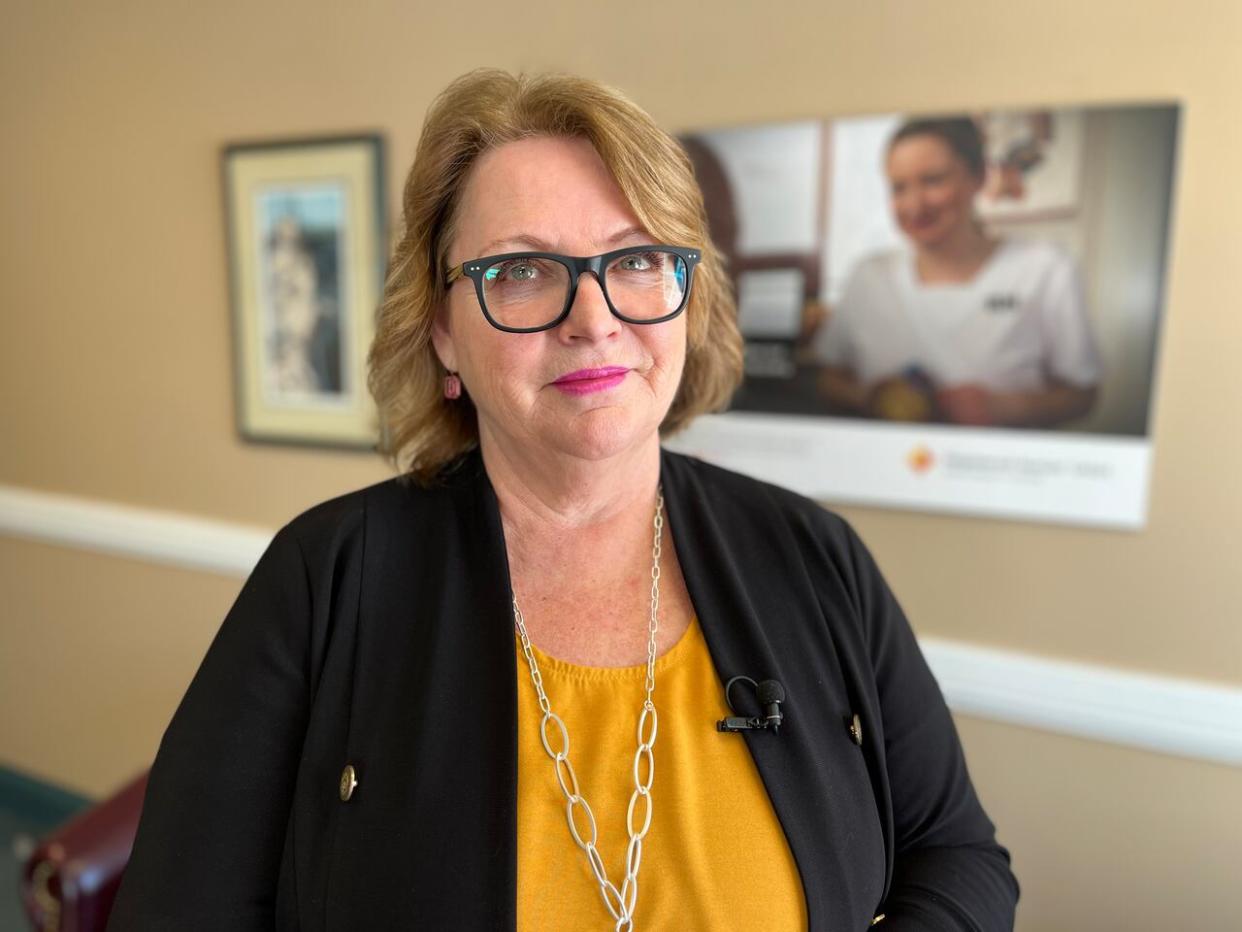Expanding nursing locum pilot program would fill health-care gaps across N.L., says union


Yvette Coffey, president of the Registered Nurses’ Union Newfoundland and Labrador, said the union hopes to expand a pilot project that allows nurses in the health-care system to work as locums in other regions of the province. (Peter Cowan/CBC)
Newfoundland and Labrador's registered nurses' union says it wants to expand a pilot project it believes would help fill gaps in rural health care across the province.
Union president Yvette Coffey said a nurse locum program that began in September 2022 allowed nurses already in the provincial system to fill short-term gaps in Labrador. About 100 nurses have taken part so far, Coffey told CBC News Wednesday, costing about $2.95 million.
"The travel locum nurses actually get an extra $25 an hour for worked hours," she said. "It's not for travelling to and from, it's actually for when they're on the ground working."
Coffey said the pilot program offers incentives comparable to those provided to agency nurses travelling to Newfoundland and Labrador that the provincial government has been relying on to keep rural emergency rooms open.
A Globe and Mail investigation earlier this year revealed the government spent $35.6 million on nurses from private agencies from April to August 2023. Coffey sees the locum pilot project as a more cost-effective solution.
"It is utilizing our own members and giving them that experience, which is also a retention strategy," she said.
"We're even having discussions, and I've recommended to the premier, that in those hard to recruit rural and remote areas on the island of Newfoundland that we could use this as a solution right now to try and help fill those gaps."
Coffey said a major incentive for nurses to take part in the pilot program is the ability to travel to other parts of the province, especially Labrador.

Coffey says about 100 nurses have taken part in the pilot project so far. (Pixel-Shot/Shutterstock)
"They're ice fishing and they're getting char given to them and they're being a part of the community that they're immersed in. And being treated as part of the community," Coffey said.
"You could take the pictures that our members share on social media, and it would be a recruitment campaign for Newfoundland and Labrador or a tourism campaign."
The pilot project was originally intended to last a year, Coffey said, but has been extended until the end of January 2025.
In an emailed statement, Health Department spokesperson Laura Thomas said the pilot project is continuing to be evaluated. The department has gotten good feedback on the project, Thomas said, specifically in regards to service delivery in Labrador.
Download our free CBC News app to sign up for push alerts for CBC Newfoundland and Labrador. Click here to visit our landing page.


